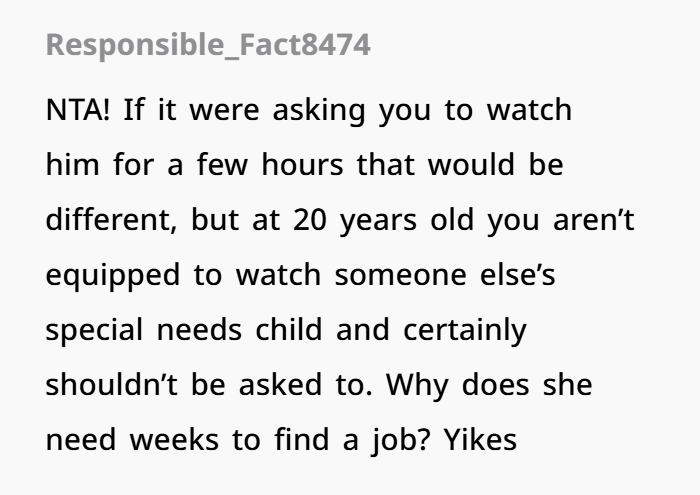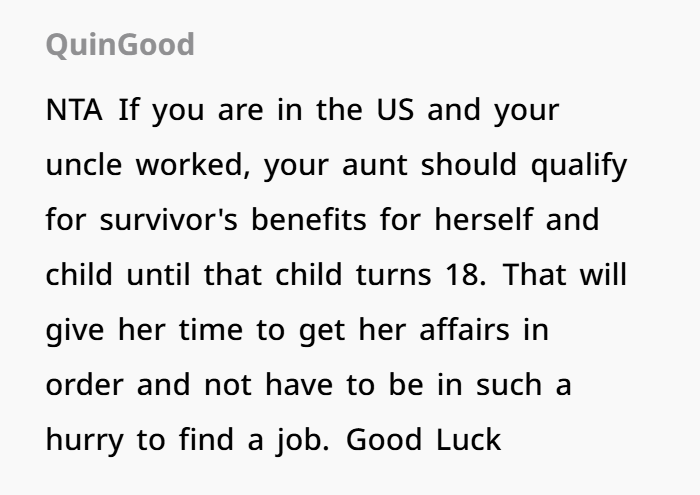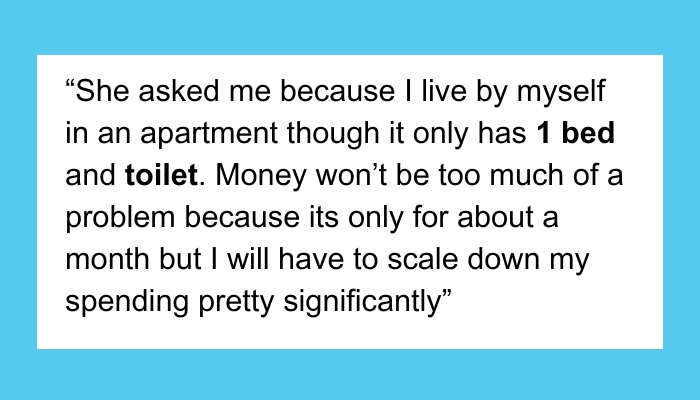Guy Refuses To Let Autistic Cousin Who Hates Him Stay With Him While His Mom Looks For Work
Everyone wants to support their family members during difficult times. While it’s not always easy, most people do their best to show love and care. Sadly, being kind and helpful can sometimes lead to being taken advantage of, especially when there are no clear boundaries.
This is exactly what happened to one man who faced pressure from his relatives. They expected him to provide free home care and temporary housing for his autistic cousin for almost a month, all to help his aunt. While he was willing to offer family support and short-term caregiving, he was uncomfortable with how his family assumed he had no choice.
Family caregiving can be rewarding, but it’s important to talk about caregiving responsibilities, emotional health, and setting healthy boundaries. Without clear communication, people can feel stressed, overwhelmed, and even face mental health issues.
When offering home care services for special needs or mental health support, always make sure you feel comfortable, respected, and have a clear agreement. Otherwise, helping family can quickly turn into an emotional burden.
Read for more info Reddit
Sometimes, family members are disrespectful and rude, which is why other relatives may not want to spend too much time around them
The poster shared that his aunt, who had lost her husband, was struggling to find a job, and hence needed someone to care for her 15-year-old autistic son
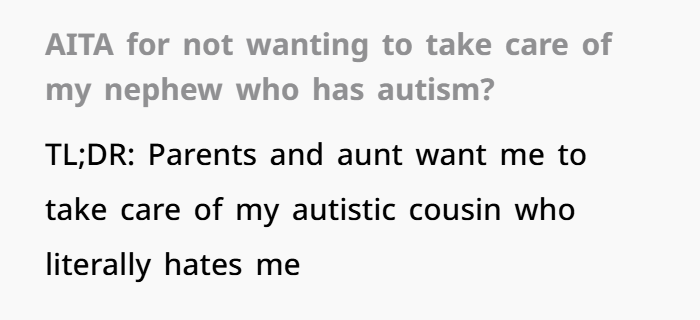
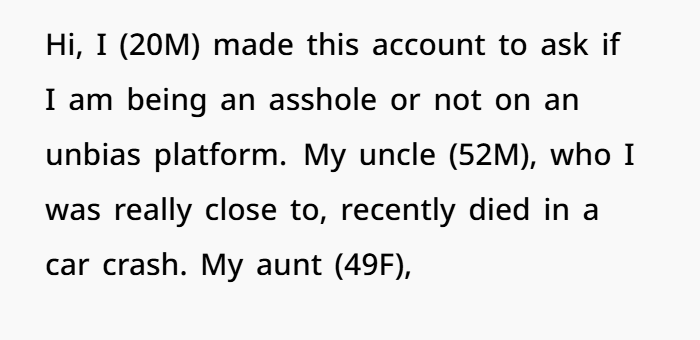
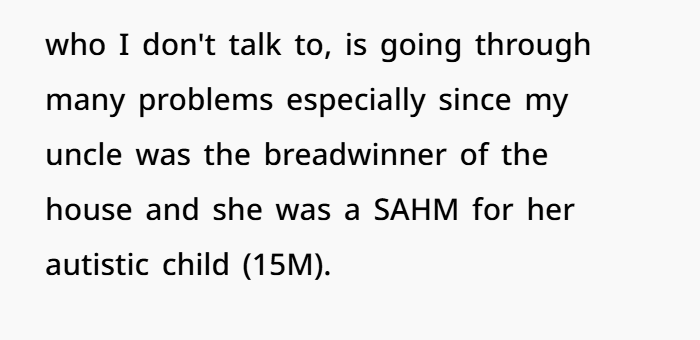
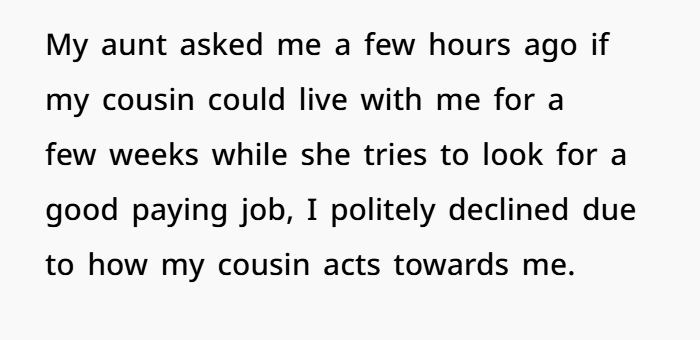
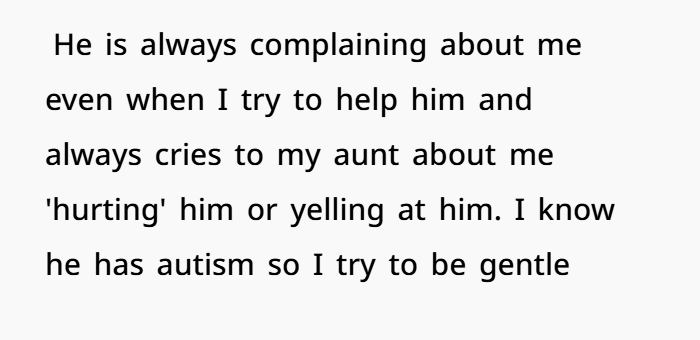
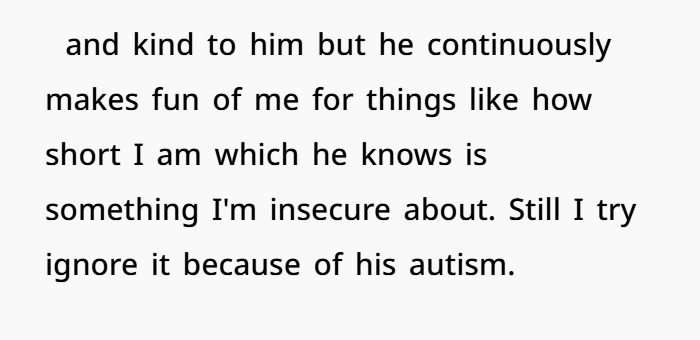
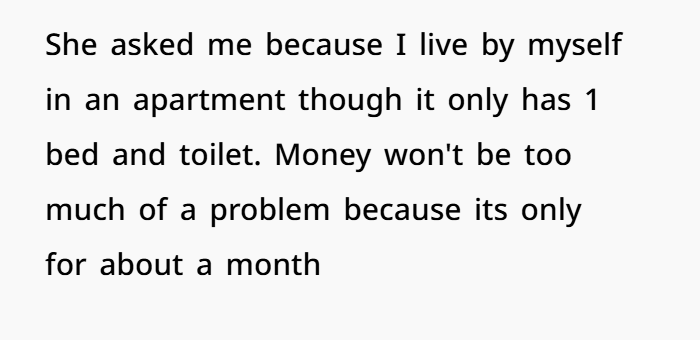
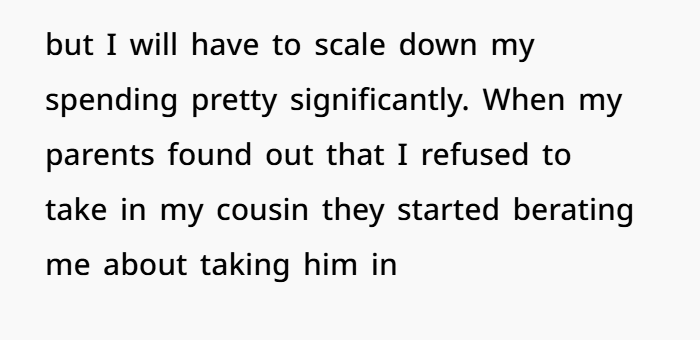
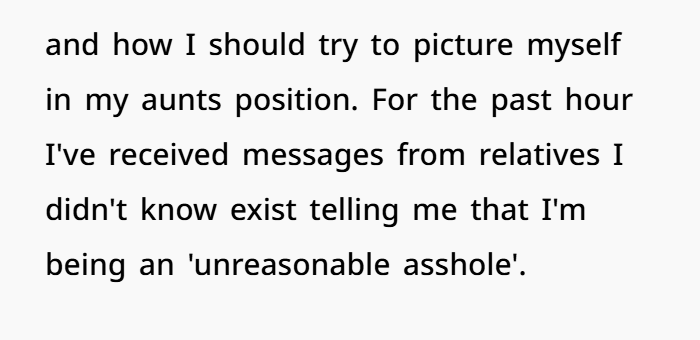
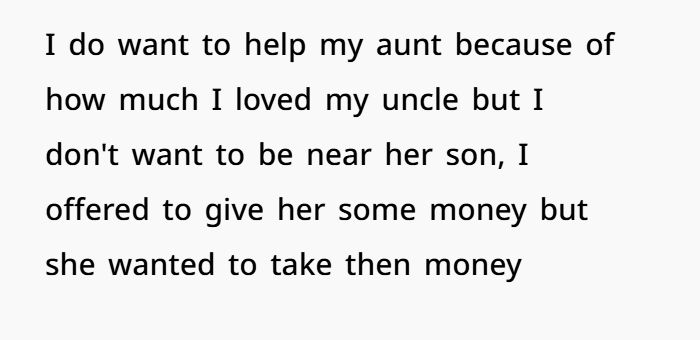
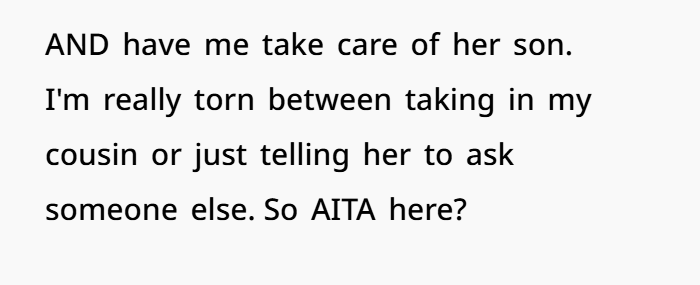

His refusal to look after his cousin angered his parents and relatives, who felt that he was being unreasonable, even though they didn’t want to help either
The poster shared that he had always found it hard to bond with his 15-year-old autistic cousin. The teenager often made fun of him, criticized him, and complained about him to his mom. Even though the poster tried to stay polite and understanding, knowing about his cousin’s autism diagnosis, he still didn’t enjoy spending too much time with him.
According to experts in autism support services and mental health counseling, there are a few reasons why autistic individuals might seem “rude” without meaning to. Many autistic teens and adults see situations differently because of how their brain processes information. Those with sensory processing difficulties can feel overwhelmed easily and may react strongly to things they find uncomfortable. Some may also fixate on certain topics and struggle to move on, which can cause tension in social settings.
The original poster (OP) understood the challenges his cousin was facing, which is why he tried to stay patient. However, he also chose to keep a healthy distance to protect his own mental health. The situation became complicated when his aunt, recently widowed, asked him to provide full-time caregiving for her son for a month while she looked for a new job.
When it comes to family caregiving responsibilities, it’s very hard to say no, especially when someone you love is struggling. The OP felt a strong sense of family duty but also worried about the emotional burden and caregiver stress this situation would cause.
Experts advise that while offering help is kind, no one should feel forced into providing caregiving support out of guilt, shame, or fear. Setting healthy boundaries is important for both emotional wellness and long-term family relationships.
Unfortunately, the original poster (OP) faced a lot of backlash from his family for deciding not to take in his cousin. Even though many of his relatives were not willing to step up and help, they still expected him to take responsibility for the teen for an entire month. This unfair pressure made the OP feel guilty and even more stressed.
While it’s important to offer help to loved ones, it doesn’t mean you should overextend yourself or sacrifice your own well-being. Acts of kindness can brighten someone’s day, but putting yourself in a painful or overwhelming situation to save someone else can cause serious emotional burnout and mental health problems.
To better understand how to handle situations like this, mental health experts explain the importance of setting strong and healthy boundaries. A real boundary is not a request—it is a personal decision about how you will act when others push your limits. Setting a boundary means you control your own actions without needing others to change first.
Even if the OP appears to be the “bad guy” to some family members, protecting his own mental health and emotional wellness is more important in the long run. It also gives other older relatives a chance to step in and share the responsibility instead of unfairly placing the burden on just one person.
When it comes to family caregiving, it’s crucial to balance kindness with self-care. Your mental health matters too.
What are your thoughts on this situation? Do you believe the OP made the right decision? Feel free to share your opinion in the comments!
People sided with the poster and felt that taking in his cousin might end up becoming a permanent thing if he isn’t careful


